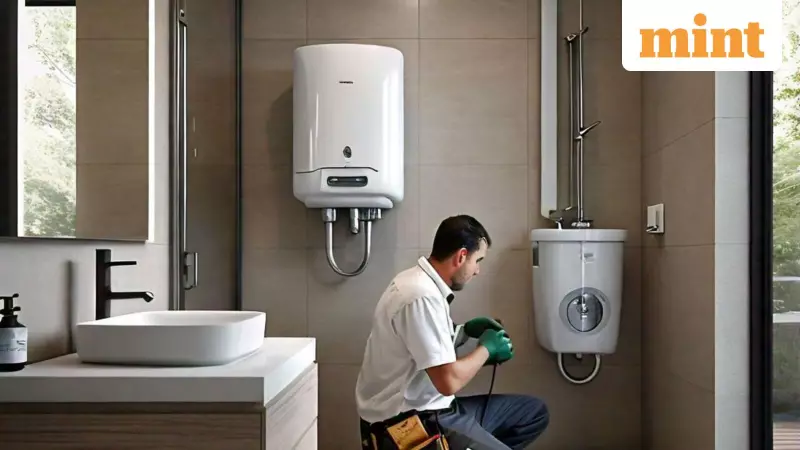
As winter mornings grow colder across India, millions of households have switched on their geysers again. While some enjoy hot water as efficiently as ever, many face frustrating delays in heating and worrying spikes in electricity consumption.
Why Your Geyser Is Underperforming This Winter
The problem isn't just the dropping temperatures. Slow heating often signals that your water heater needs proper care and maintenance. Before considering expensive replacements or technician calls, these five straightforward solutions can restore your geyser's efficiency.
1. Maintain the Heating Element
The heating element serves as your geyser's core component, and hard water containing calcium and magnesium creates mineral scale buildup over time. This insulating layer reduces heat transfer efficiency, forcing the system to work harder and consume more electricity while delivering slower results.
Solution: Schedule professional cleaning or replacement of the heating element annually, preferably before winter begins.
2. Address Tank Mineral Deposits
Mineral accumulation inside the tank acts as insulation, preventing uniform water heating. Significant scale buildup can eventually cause corrosion or even leaks, compromising your geyser's structural integrity.
Solution: During routine servicing, request that technicians flush the tank with descaling chemicals to dissolve mineral deposits. Regular descaling enhances heating speed and extends your appliance's operational life.
3. Optimize Thermostat Configuration
Many homeowners lower thermostat settings hoping to save electricity, unaware that this can actually increase heating duration. The thermostat controls water temperature, and improper settings disrupt efficient operation.
Solution: Set your thermostat between 50°C and 60°C for optimal comfort and efficiency. If heating remains sluggish, have the thermostat professionally tested or replaced.
4. Verify Electrical Supply Quality
Geysers require consistent voltage for peak performance. Voltage drops below 200 volts can cause slow heating and potentially damage internal components over time.
Solution: Install a quality stabilizer to maintain steady voltage supply. Additionally, inspect aging or damaged wiring to ensure your geyser receives adequate power.
5. Check Water Pressure Issues
Sometimes the problem originates from water flow rather than the geyser itself. Low water pressure slows tank refilling, which consequently delays the heating process.
Solution: Clean obstructed pipes or pressure valves and verify consistent water inflow. For persistent low pressure, consult a plumber to identify potential leaks or blockages.
Maximize Efficiency This Winter Season
With proper maintenance and regular checkups, your geyser can deliver faster heating, longer service life, and significant savings on escalating electricity bills throughout the winter months. These simple interventions often resolve common issues without major expenses.






